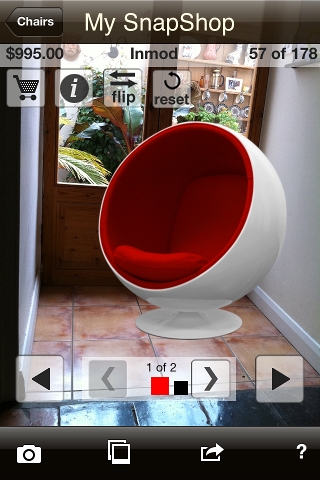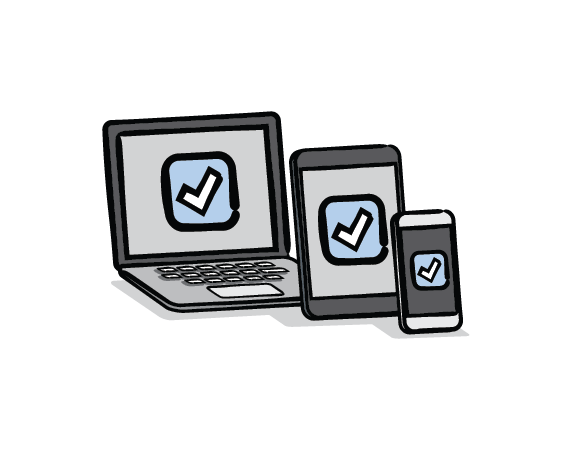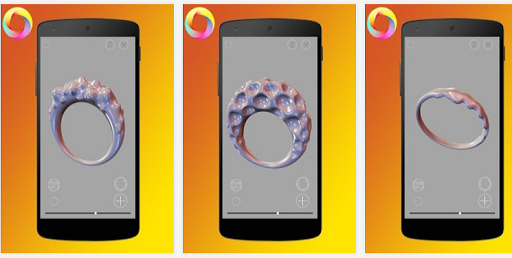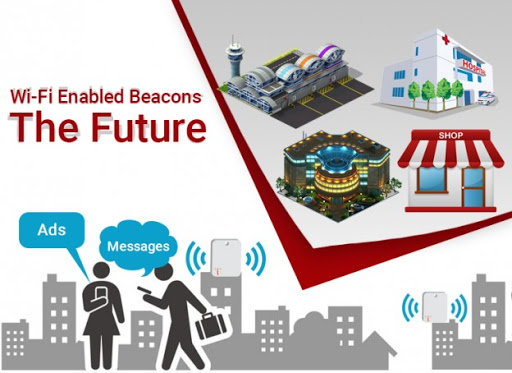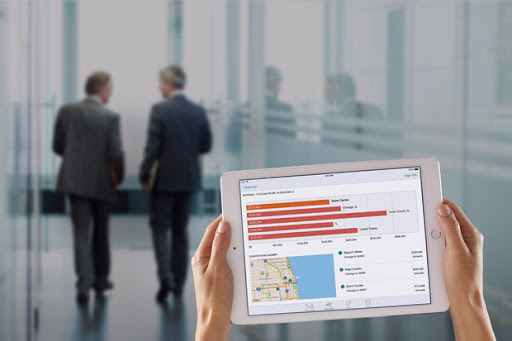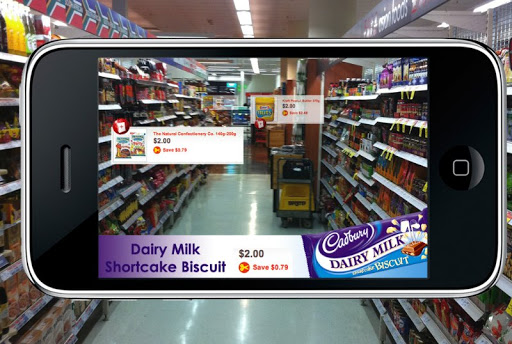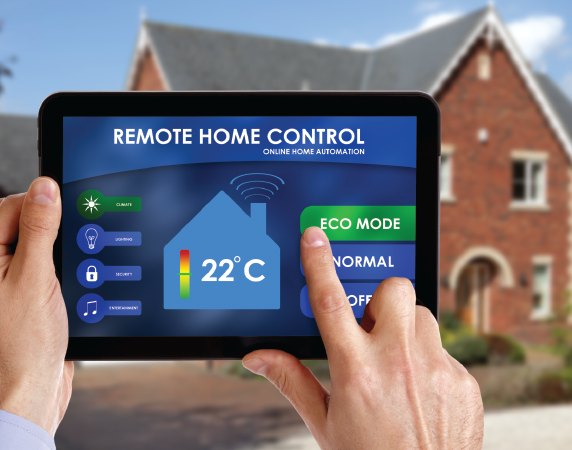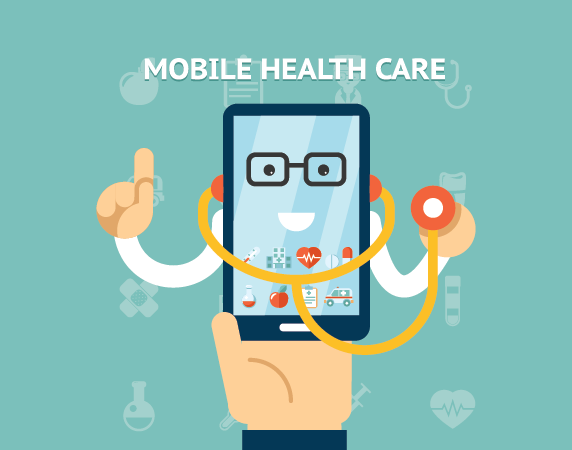Top Mobile App Development Trends That Will Rule 2016 and Beyond
We have seen the rise of certain revolutionary technologies over the past few years, like the IoT, Cloud computing and Big Data, bringing breakneck transformations throughout every industry. Being one of the greatest, irreplaceable inventions in life, the mobile industry is perhaps mostly impacted by all these emerging trends, constantly striving to bring the hottest trends at customers’ fingertips. In a short span of time, the smartphone alone has replaced the need for several other products and services, simply rendering them worthless. Not convinced?
What do you do these days when you need a dress, need to order your favorite food, hire a cab, perform a bank transaction, communicate with someone, or simply wants to entertain yourself with games, videos or social networking sites?
Grab your smartphone, right? Was this the case a few years back, when mobile phones could only place calls and send text messages?!
That’s how the mobile and mobile application industries are evolving. Today, we breathe, eat, sleep and live mobile.
So, how will be the Mobile app industry like, in the coming years? What trends will rule the smartphone application development? Let’s take a look:
More Augmented Reality, Virtual Reality based apps will come to play
AR and VR have been incredible technologies that made our lives resemble those in science-fiction movies, which once seemed impossible. AR has already revealed itself through mobile apps over the last years, from interactive map overlays to virtual showrooms. For instance, the SnapShop showroom app using AR technology lets users evaluate how particular furniture will look in their space. myNav, iOnRoad, Sky Siege are AR based mobile games already out in the market. This year we’ll see more and more businesses, from retail, e-commerce, entertainment, lifestyle to healthcare sectors creating AR based mobile apps to engage their customers and provide them better experience.
VR, though didn’t see a growth as big as AR, is not far behind. The technology that was mostly around entertainment and gaming, is now gaining momentum, with the advent of devices like the Oculus Rift, Samsung Gear VR, and Google Cardboard. The giants like, Facebook investing in Oculus VR (releasing this year) is a hint on how big its market will be.
Read more: Virtual Reality: The Revolutionary Force
Mobile Apps using Artificial Intelligence
Technology giants like, Google, Facebook, IBM and many others are investing in artificial intelligence, thus moving towards more complex computer algorithms. There are quite a few iOS and Android personal assistant mobile apps today that use artificial intelligence for smart decision making and stuff. Google Now and Apple’s Siri are apps having Natural Language Understanding (NLU), and are able to receive and understand direct instructions from the user, which according to many experts are a basic level of AI. The number of apps using AI will only increase in the years ahead.
App Security
Developers were pretty busy last year solving security issues with over 75% of apps that failed to meet even the fundamentals of security/privacy policies. Sensitive and confidential user information like, bank details and SSN become vulnerable if various apps and platforms using these fail to implement proper security protocols. The latest versions of iOS (iOS 9) and Android (Android 6.0 Marshmallow) have considered security and privacy as one of the significant parameters of app development and will continue to be of prime importance to developers.
Cross-Platform Development
Businesses are not just walking past the concept of fixed office spaces and immovable PCs or desktops, but are using varieties of smart devices, like tablets, smartphones, notes and so on, for a flexible working experience. Hence, having apps confined to be used on a single platform will become irrelevant. Apps that can be easily migrated from one platform to the other will be on demand and mobile app development will thus not confine to single platforms.
Read more: Native vs. Hybrid: Things to Know Before Building Your Next Mobile Application.
HTML 5
HTML 5 has been gaining popularity since 2014 for its ease to create hybrid mobile applications that work on multiple platforms. App developers may concentrate on building more HTML5 mobile apps (compared to Native apps) that are portable across different devices, platforms and operating systems. HTML 5 supports off-line data and rich Medias like audios and videos, making them work even when the device is offline.
Read more: Developing Native and Hybrid apps 101
Mobile Apps for 3D Printing
3D printing has been a technology that took the world by storm. With 3D printers becoming cheap and commercially available for affordable rates, the demand on mobile apps for 3D modeling and printing has increased. This year, 3D printing market is expected to rise to a trillion dollar market and we will also see smart apps focused on cloud and mobile CAD, interaction with physical world, and the like.
Beacon and Location-Based Wi-Fi Services
Wi-Fi will provide more than just internet access. Businesses will use beacon technology to understand where their customers are, and engage with them through relevant and personalized content sent to their mobile phones using the Wi-Fi. Beacon technology has reduced the gap between online and offline services in advertising and retail industries. Apple has already integrated the technology in their iOS to communicate with Apple’s iBeacon networks.
Read more: Different kinds of Beacon technologies and how iBeacons enhance customer experience.
Wearable, drones, and smart machines
The focus has shifted from consumer wearable to enterprise wearable this year. With more employees using wearables at work, businesses will require enterprise apps to manage and control efficient usage of these to increase productivity. Drones and robots were mainly limited to the locomotive industry, however, this year, a lot more robots will arrive, that consumers can really take home to simplify their daily tasks. With the drones and robots becoming common in markets, obviously we need to develop plenty of smart apps to make them work.
Read more: Wearable Technology-Dark Horse of Enterprise Workforce Efficiency?
Low Shelf Life Apps
Industries, like, Sports, Entertainment, Retail, and Media, may require apps that will work for a short period of time, until a particular event lasts or so. These are created temporarily for industries for instant gratification and needn’t last forever. For instance, companies may require apps during the FIFA world Cup season, to conduct events or reach out to the fans during that particular period of time. More industries will use such short-lived apps strategy in years ahead. Need to build such an app? Let us help.
Enterprise App Consumerization
Earlier, enterprise apps were built with strong foundation and less importance to the design. However, with more and more employees starting to use mobile devices at work, user experience has become a central factor and enterprise apps are built to look more like consumer apps. The trend has continued through 2014 and is expected to change the way enterprise software will look and will be used.
Read more: Top 5 Enterprise Application Development Trends 2016
In- App Advertising, Purchasing, and Location Based Mobile Advertising
Mobile ads will not be limited to just banners, but various other ad formats will be experimented, video ads leading the line. Studies show that in-app advertising is 11.4 times effective than standard form of banner ads. It will become more common and profound as users spent more time in mobile apps compared to website browsing, and will be a major source of revenue for app developers. This year the ads will mature further by getting the location-based technology, which will help advertisers take the relevant offers to the right customer at the right place and time.
Big Data and App Analytics
Performance tracking and decision making will become even more focused with smart data collecting and evaluating metrics in apps. Developers will concentrate on providing better performance insights to clients through data visualization and analysis. There will be thus more focus on big data and app analytics.
Smart Cities, Homes, and Offices
As more and more things get connected in the Internet of Things, there will be better ways of managing traffic, providing parking solutions, ensuring safety, connecting and controlling homes, offices, vehicles and equipment with mobile phones and so on. App developers will be really busy creating secure apps that will help people control their connected equipment remotely and safely.
mHealth
With more wearables, sensors and tracking devices getting into the medical sector, the mobile app consultations will become more matured this year. Medical field will be largely influenced by the technologies, and apps will be the binding units that will connect healthcare with IT. There will also be dedicated mobile health apps to track health of users, diagnose a variance, alert check-up etc.
Read more: Emerging Trends in Healthcare IT, 5 Pointers to Make Sure Your Healthcare Application is Future Proof, Top 5 Technology Trends Driving the Growth of Healthcare, Healthcare – Gearing up For the Internet of Things
Being one of the leading mobile app development solutions providers ourselves, we are as excited as you about the latest trends in IT, and are constantly evaluating the emerging trends and opportunities to remain the cream of the crop option for our clients. What other trends do you see rising in mobile app development in the coming years? Share your thoughts with us.
Image credits: SnapShop, think3d, bfonics.com, androidpolice, CIO
Stay up to date on what's new

Recommended Posts

21 Jul 2023 B2B
How Biometric APIs Will Replace Passwords on Mobile Apps
Technology successively progresses all around us; from the simplest basic Google searches to the working of aircraft, technology has indented its value in everyday life. Biometric APIs are not a……

22 Nov 2022 B2B
React Native, Flutter, Ionic, Xamarin – A Comparison Between The Top Mobile App Development Frameworks
Frameworks are the backbone of mobile app development. They are essential to building dependable apps quickly. When choosing a framework, you can choose between native or cross-platform applications. Though both……

14 Jan 2022 B2B
Know What’s Driving Custom Software Development Cost in 2024!
Everyone uses software products. From toddlers to grandparents, in one way or the other, almost everyone has used a software product. The number of mobile devices operating worldwide stood at……

10 Dec 2020 Retail
Top Technologies Used to Develop Mobile App
Leading Mobile App Development Frameworks in 2021 The COVID-19 forced social distancing and lockdown policies are driving a steady rise in mobile usage. In Q3 of 2020 alone, 33 billion……
Featured Blogs
Stay up to date on
what's new



